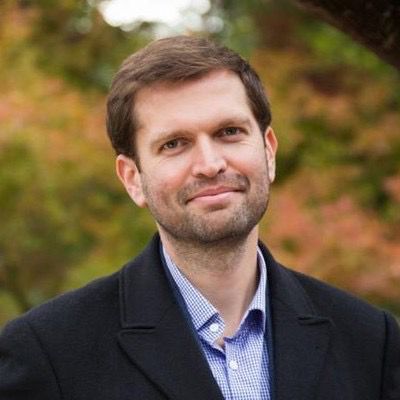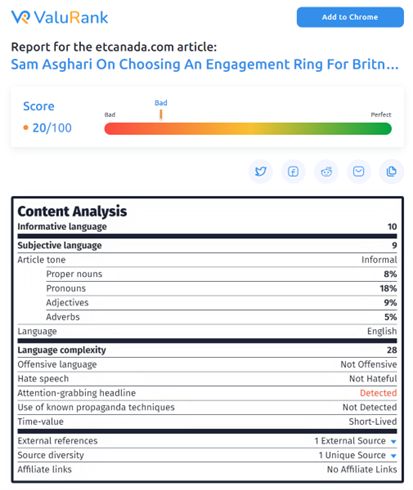
A la vez que la información llega diariamente a manos de las personas, la inteligencia artificial avanza a pasos agigantados para contrarrestar la desinformación a la cual se enfrentan todos aquellos que hacen uso de la tecnología ya que en materia digital «el mayor problema es que todos consumimos basura», declaró Alex Fink, expatriado y ejecutivo de tecnología de Silicon Valley.
Así lo señaló el creador de la plataforma Otherweb, quien detalló que los usuarios de Internet diariamente se ven bombardeados por una gran cantidad de «basura» a través de las diversas páginas web que a su vez ofrecen contenido innecesario y que forman parte del consumo diario de todos los que navegan por la red.
Y es que, un estudio realizado por Global Web Index –GWI, por sus siglas en inglés– reveló que los usuarios pasan al menos 7 horas al día conectados a internet en todos sus dispositivos, mientras que el Informe Global Digital 2022 señaló que, a principios de este año, el número de usuarios de internet ascendió a 4.95 billones.
Derivado de la pandemia, el uso de las redes sociales aumentó significativamente y plataformas como TikTok comenzaron a ser una de las más populares entre los jóvenes y adultos, pues tan solo al inicio de este año los usuarios mayores de 18 años de esta red social eran más del 50 por ciento de todos los adultos de Estados Unidos.
«La gente no consume miles de millones de páginas, sólo consume entre 100 y 200 páginas al día. Y la forma en que encuentran estas no es aleatorio: normalmente confían en intermediarios como Google y Facebook y TikTok para seleccionar estas páginas por ellos», señaló Fink.
Fink, quien dedicó durante 15 años a fabricar cámaras y productos para ordenadores, notó durante ese tiempo los problemas a los que se enfrenta la sociedad en cuestión de información y tecnología, por lo que comenzó a buscar soluciones a estos y creó Otherweb.
Así, Otherweb es una plataforma que busca filtrar la información que llega a manos de los usuarios, al igual que noticias falsas a través de un conjunto de modelos de inteligencia artificial –IA–.
«Lo único en lo que destaca la IA es en hacer las cosas casi tan bien como lo haría un humano. Una vez que esto ocurre, la IA gana, porque a diferencia de un humano, puede aplicarse a gran escala», destacó Fink en entrevista para Península 360 Press.
Ante ello, Otherweb busca que a través de una «etiqueta nutricional» el usuario decida qué sitio web es mejor para consumir información, de manera que, como efecto secundario, los sitios web y plataformas busquen mejorar la calidad de la información que ofrecen.
La «etiqueta nutricional» que ofrece Otherweb hace un análisis en cuanto a la informatividad, subjetividad, formalidad, referencias externas, titulares de «clickbait» o títulos engañosos, entre otros aspectos, por lo que la plataforma creada por el ejecutivo de tecnología, permite a los usuarios que la búsqueda en la web esté libre de «basura», propaganda o sesgo partidista extremo, pues para Fink, «si una pequeña parte del mercado filtra la basura, habrá menos incentivos para que ésta sea producida».

«Necesitamos que la capa que se interpone entre los productores y los consumidores –los intermediarios a través de los cuales la gente encuentra los artículos que acaba leyendo– recompense la calidad y penalice la búsqueda de atención», comentó Fink.
Usar la inteligencia artificial para combatir las «fake news» en épocas electorales
Durante las elecciones presidenciales de 2020 en Estados Unidos circularon miles de «fake news» o noticias falsas que pusieron en riesgo la participación de las comunidades hispanoamericanas en el país, provocando que distintos organismos pidieran que la desinformación fuera frenada.
Y es que, para las próximas elecciones intermedias en el país que se llevarán a cabo en noviembre de este año, la preocupación por otra oleada de desinformación –como la que sucedió en el 2020– se ha hecho notar entre funcionarios y votantes, pues el fenómeno puso en duda la legitimidad de la victoria del candidato presidencial Joseph Biden.
Fink declaró también que actualmente, «el porcentaje de adultos que confían en las noticias es del 69 por ciento en Finlandia; del 48 por ciento en Brasil; 35 por ciento en Italia; y de 26 por ciento en Estados Unidos».
«No disponemos de datos sobre la Unión Soviética, pero creo que se puede adivinar que estaba muy por debajo del 10 por ciento. Lo que me preocupa es que Estados Unidos vaya en la misma dirección. Así que las decisiones de la gente sobre la dirección del país no están cargadas a la derecha o a la izquierda; sino que tienden a la baja. Y la solución es que vayan hacia arriba».
Sin duda, la IA puede ser de gran ayuda en el combate a la desinformación, sobre todo en eventos de gran magnitud como son las elecciones, por lo que utilizar plataformas como Otherweb que filtren el contenido falso puede ser de gran utilidad para que todas las comunidades tomen decisiones basadas en información asertiva y verás, pues incluso, es capaz de ofrecer artículos de derecha e izquierda sin que exista un sesgo. «El mejor antídoto para esto es la transparencia», precisó Fink.
Trastornos relacionados al uso excesivo de internet
En la actualidad, las personas están expuestas a cientos de páginas y plataformas que proporcionan información, lo que no solo ha dejado ver el problema de desinformación que existe actualmente sino también los trastornos en la salud mental que pueden llegar a surgir.
Tal es el caso del «síndrome del pensamiento acelerado», el cual tiene como origen el exceso de información, estrés o actividades y que Augusto Curry, médico psiquiatra, en su libro «Padres brillantes, mentes fascinantes» describe como un aumento en la velocidad de los pensamientos que disminuye la capacidad de concentración.
Además, según estudios, el constante bombardeo de información al que están expuestos los usuarios ha generado patologías como el estrés, depresión, trastorno obsesivo-compulsivo, trastorno por déficit de atención e hiperactividad –TDAH– y trastornos alimenticios.
Y es que ¿cuántos no nos hemos sentido ansiosos después de algunas horas de estar expuestos a la información que circula en redes sociales y sitios web? o ¿cuántos no hemos perdido la capacidad de concentrarnos en nuestras actividades diarias debido al exceso de contenido que consumimos?
«Si le das a la gente un podcast de larga duración –incluso si dura 3 horas–, las mismas personas que parecían tener un déficit de atención hace cinco minutos se transforman de alguna manera en pensadores profundos que anhelan el conocimiento. Creo que la conclusión obvia es que los consumidores no son la causa principal de esta tendencia», subrayó Fink.
Ante ello, Fink espera que en un futuro los escritores y editores utilicen los modelos de IA que ofrece Otherweb para mejorar la calidad del contenido que ofrecen, y que los motores de búsqueda y las redes sociales decidan qué contenido promover y finalmente, sean los lectores quienes puedan elegir qué contenido vale la pena consumir.
«Los consumidores reaccionan a lo que encuentran en su entorno. Si les das pensamientos profundos, actuarán como pensadores profundos», finalizó Fink.
Te puede interesar: Condenan a ex gerente de Twitter por espiar para Arabia Saudita

